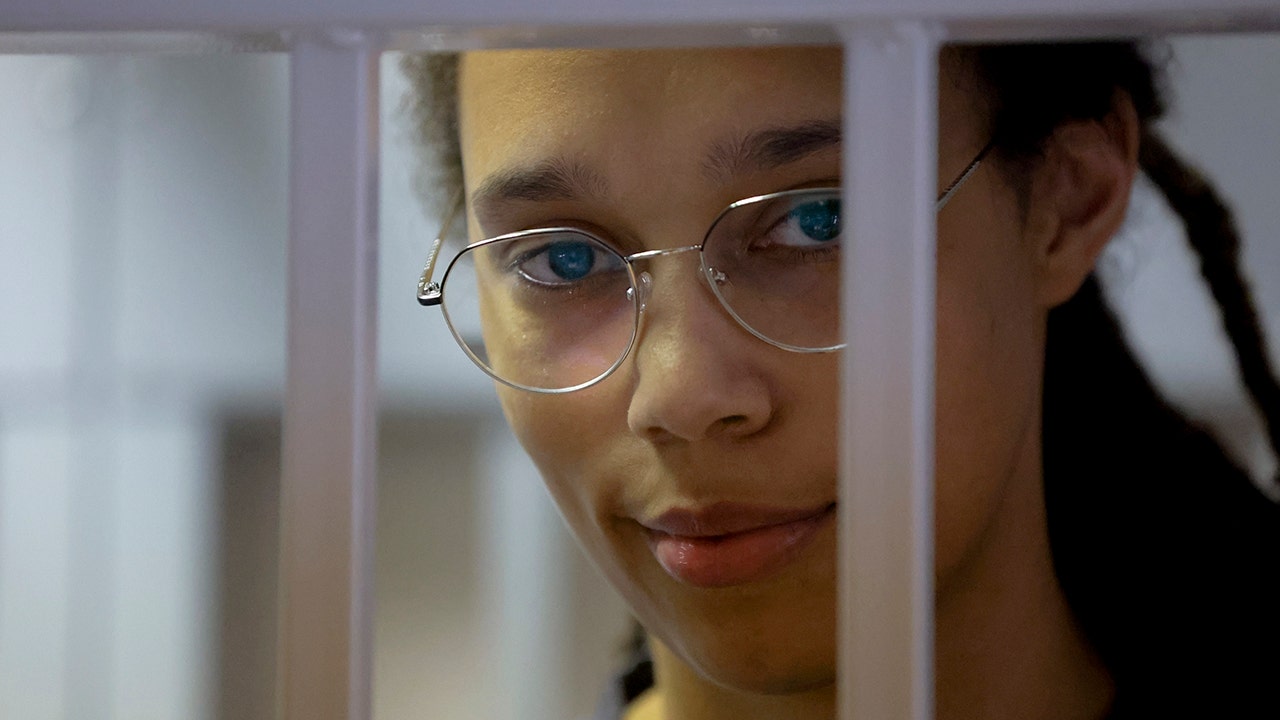Unveiling The Truth: Is Brittney Griner A Transvestite?
Brittney Griner, a name that resonates in the world of sports, particularly basketball, has been a subject of discussion not just for her incredible skills on the court but also for her personal life. As a prominent figure in the WNBA, she has gained both fame and notoriety, contributing to various conversations around gender and identity. The question that often arises in light of her public persona is: is Brittney Griner a transvestite? This article aims to delve deeper into Griner's life, her identity, and the misconceptions that surround her. We will explore her biography, achievements, and the societal perceptions that follow her.
Understanding the essence of an individual transcends mere labels. In Brittney Griner's case, her identity is multifaceted and complex, shaped by her experiences and the environment around her. The discussions surrounding her gender and personal identity often lead to misunderstandings, and it is crucial to clarify what it means to identify as a transvestite versus being a part of the LGBTQ+ community. By examining Griner's journey, we can gain insight into her true self while addressing the question at hand.
As we navigate through this article, we will also touch upon the cultural and societal implications that come with being a public figure in the LGBTQ+ community. In a world where labels can often overshadow the individual, it is essential to approach the topic with an open mind and a willingness to understand. So, let’s take a closer look at Brittney Griner’s life and identity to unravel the truth behind the question: is Brittney Griner a transvestite?
Who Is Brittney Griner? A Brief Biography
Brittney Griner is a professional basketball player who has made significant contributions to the sport. Born on October 18, 1990, in Houston, Texas, she rose to fame during her college years at Baylor University, where she led her team to a national championship in 2012. Standing at 6 feet 9 inches, Griner is known for her remarkable skills, including her shot-blocking ability and scoring prowess. Over the years, she has played for the Phoenix Mercury in the WNBA and has represented the United States in international competitions, winning gold medals.
| Personal Details | Bio Data |
|---|---|
| Full Name | Brittney Yevette Griner |
| Date of Birth | October 18, 1990 |
| Height | 6 ft 9 in (2.06 m) |
| Position | Center |
| College | Baylor University |
| WNBA Team | Phoenix Mercury |
| National Team | USA Basketball |
What Does It Mean to Be a Transvestite?
The term "transvestite" refers to an individual, typically a man, who dresses in clothing traditionally associated with the opposite gender. This practice can be motivated by various factors, including personal expression, performance art, or simply a preference for clothing. It is essential to understand that being a transvestite is not synonymous with being transgender; transvestites may not necessarily identify as a different gender.
Is Brittney Griner a Transvestite? The Evidence
When exploring whether Brittney Griner can be classified as a transvestite, it is vital to consider her self-identification and personal statements. Griner has openly discussed her identity as a member of the LGBTQ+ community, specifically identifying as a gay woman. There is no indication in her public life that she identifies as a transvestite or engages in cross-dressing as part of her personal expression.
- Exploring Mkvmoviespoint 2022 Your Ultimate Guide To Movies
- Understanding Shacarri Richardsons Journey A Look At Her Life And Children
How Has Brittney Griner Contributed to LGBTQ+ Advocacy?
Brittney Griner has used her platform to advocate for LGBTQ+ rights, particularly in the context of sports. She has been vocal about the challenges faced by athletes in the LGBTQ+ community and has worked towards fostering inclusivity in sports environments. Griner's openness about her sexual orientation has encouraged many others to embrace their identities, making her a role model for countless individuals.
What Challenges Has Brittney Griner Faced?
As a high-profile athlete who identifies as part of the LGBTQ+ community, Brittney Griner has faced various challenges, including discrimination, scrutiny, and public misconceptions. The pressure of being in the spotlight often comes with negative commentary and invasive questions about her personal life. Griner has navigated these challenges with resilience, using them as a platform for advocacy and awareness.
How Does Society Perceive Brittney Griner's Identity?
The societal perception of Brittney Griner's identity reflects broader attitudes towards LGBTQ+ individuals in sports. While many fans celebrate her achievements and contributions to basketball, others have questioned her identity, leading to discussions about gender norms and stereotypes. Griner's presence in the sports world has sparked vital conversations about acceptance and inclusivity.
What Can We Learn from Brittney Griner's Journey?
Brittney Griner's journey serves as an important lesson in understanding identity, acceptance, and the importance of breaking down stereotypes. Her story highlights the significance of embracing one's true self and advocating for others in the community. By challenging misconceptions and promoting inclusivity, Griner has paved the way for future generations of athletes to feel empowered in their identities.
Conclusion: Is Brittney Griner a Transvestite?
To answer the question, "is Brittney Griner a transvestite?" it is essential to recognize her identity as a gay woman and her contributions to the LGBTQ+ community. Griner's journey is not defined by labels but rather by her resilience, advocacy, and passion for basketball. As society continues to evolve in its understanding of gender and identity, it is crucial to approach discussions about individuals like Brittney Griner with respect and an open mind.
Article Recommendations



Detail Author:
- Name : Nakia Nikolaus II
- Username : bernice.pfeffer
- Email : norris17@hill.net
- Birthdate : 2001-01-11
- Address : 189 Harvey Plaza New Millieville, MS 84558-0747
- Phone : 754.754.0472
- Company : Reynolds-Connelly
- Job : Protective Service Worker
- Bio : Odio similique ea placeat laborum ratione incidunt. Veniam quia autem rerum quis corrupti facilis.
Socials
instagram:
- url : https://instagram.com/feeney2004
- username : feeney2004
- bio : Delectus qui quis rerum. Possimus eum suscipit sed. Id facere provident dicta ut.
- followers : 6357
- following : 581
twitter:
- url : https://twitter.com/ahmedfeeney
- username : ahmedfeeney
- bio : Possimus accusantium tempore reiciendis est architecto. Ut consequatur consequatur provident. Voluptatem error quod qui dolorem eius.
- followers : 2849
- following : 2725
facebook:
- url : https://facebook.com/ahmedfeeney
- username : ahmedfeeney
- bio : Cumque tempora dolor impedit occaecati dicta aliquid.
- followers : 113
- following : 1887
tiktok:
- url : https://tiktok.com/@ahmed.feeney
- username : ahmed.feeney
- bio : Fugiat sit sapiente porro voluptas sed dignissimos modi.
- followers : 5409
- following : 2628
linkedin:
- url : https://linkedin.com/in/ahmed_official
- username : ahmed_official
- bio : Consectetur qui dolores tempore.
- followers : 5141
- following : 389